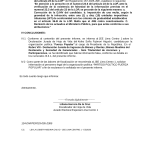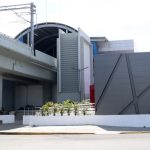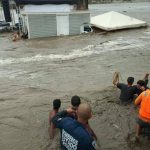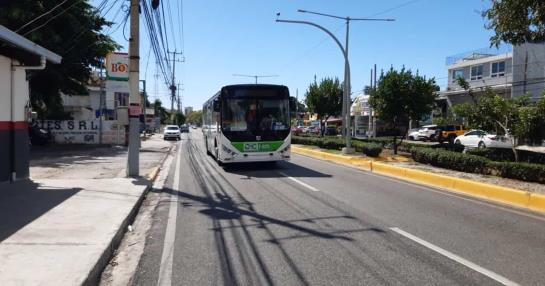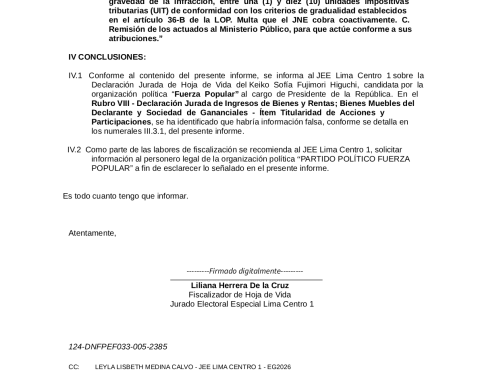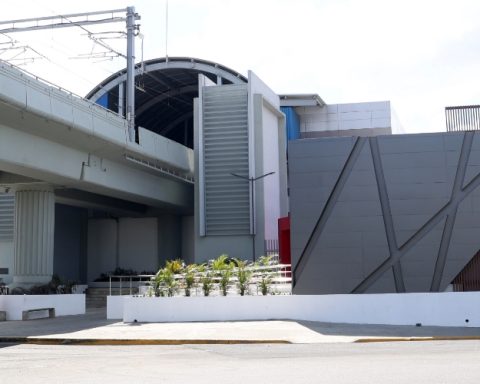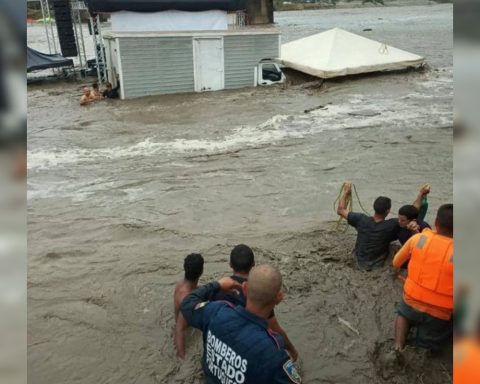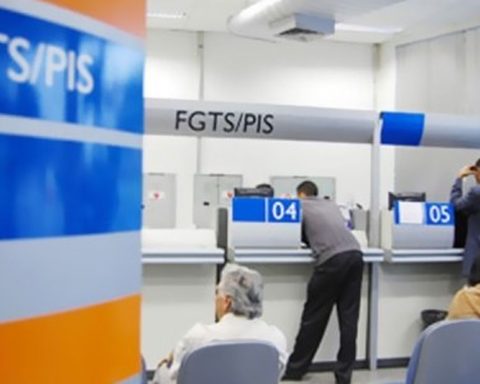For many years it was ‘Cacho’s’ bar. Later it became a committee in favor of the candidacy of Jorge Larrañaga, and there are still remnants of that time marked on the wall. Finally it was a house, before the flames swept through its interior, causing the roof to collapse and affecting neighboring houses. The fire at the corner of Luis Batlle Berres and Silvestre Ochoa avenues, in the middle of Santiago Vázquez, marked the afternoon of August 22, 2021.
A family argument led to a minor setting fire to his home. Natalia saw the smoke from afar, and with the reference of two local antennas she was alerted by the proximity to her house. “I asked my niece what was happening, and she told me to come, because all the houses were setting fire,” she told The Observer the neighbor of the block. “Giant tongues of fire came out. She burned Antel cables, she burned UTE cables, she burned everything”, she revived.
Leonardo Carreno
The case of Santiago Vázquez was the only one in which Firefighters took refuge in the decree of July 2021
The black stains remain engraved on the façade of what to this day constitutes the only building in the entire country boarded up by firefighters since the validity of decree 213/021, based on the information you accessed The Observer through an access request. The measure signed by President Luis Lacalle Pou and Minister Luis Alberto Heber in July 2021 constituted a commitment by the Ministry of the Interior to combat illegal occupations and the evolution of abandoned structures into bases for drug dealingas stated Search on that date.
The new regulations gave the body of the Ministry of the Interior the possibility of “proceeding immediately” to block the access routes of the buildings, once the tenants have been evacuated due to an accident or the risk of landslides. Before the decree, the agency’s work was limited to prohibiting the re-entry of the structure, but that did not imply blocking entry with doors and windows.
The incident in Santiago Vázquez occurred the month after the regulation came into effect. The mother of the young man responsible for the fire told Telenoche that day that her son set the house on fire around 3 in the afternoon. “With nothing, he left me with nothing. Only with what is on. He lives with us, but he has psychiatric problems and is on medication,” she recounted.
The neighbors consulted by The Observer They still remember the altercation, the fire that spread over the adjoining properties and the belongings scattered urgently on the sidewalk. During the first days, patrol cars remained guarding the devastated structure, without any door or window to prevent access. After a week the firefighters walled up all the entrances, and since then the gray blocks have been integrated into the landscape of the area.
According to the commander of the Metropolitan Area, Héctor Márquez, this was the only case under his jurisdiction in which they were protected by the new decree. The Interior Firefighters Command, on the other hand, has not carried out any bricking up to now, according to what emerges from the response of Commander Martín Bogao.
But despite being in force for seven months, it has only had an impact on a single case. consulted by The Observer, spokesman Simón Burlón indicated that firefighters can only proceed according to the decree when “it is due to fire or there is really complex structure damage.” Nor can the division act ex officio before structures that are already abandoned and in a state of deterioration since before the decree was issued, he said.
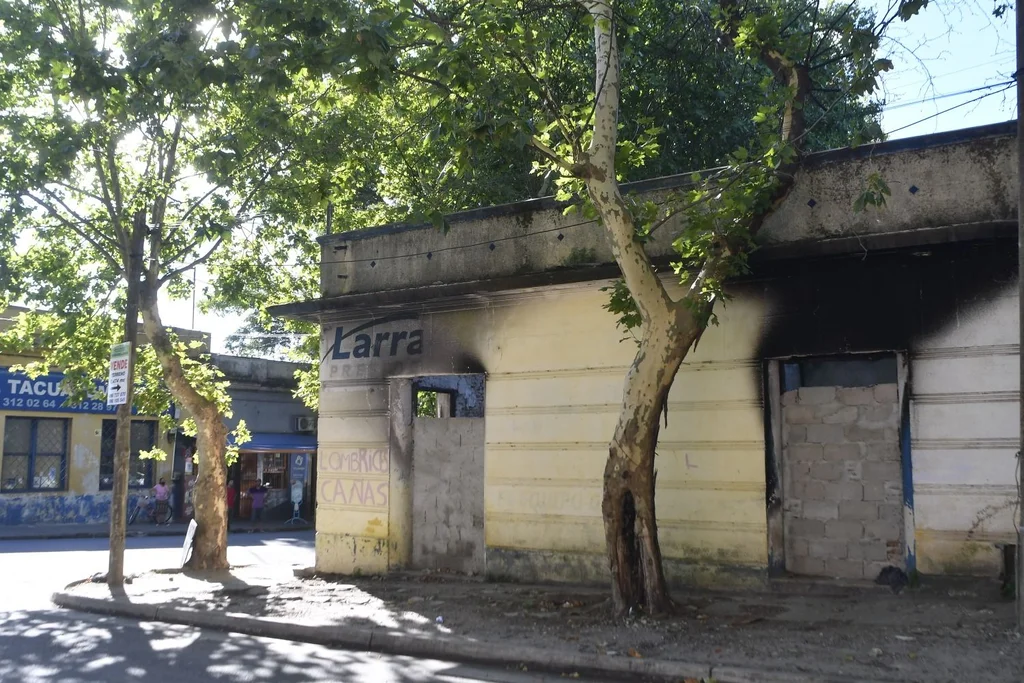
Leonardo Carreno
Walled-up entrances in Santiago Vázquez, in Batlle Berres and Silvestre Ochoa
But despite being in force for seven months, it has only had an impact on a single case. consulted by The Observerthe spokesman Simón Burlón indicated that firefighters can only proceed according to the decree when “it is due to fire or there is really complex structure damage”. the deal nor can it act ex officio before structures already abandoned and in a state of deterioration since before the issuance of the decreeHeld.
“In order to do that, certain circumstances have to occur,” Burlón explained. “For Firefighters to go, someone has to make an inspection request”, he detailed. The absence of owners or the difficulties in locating them represent one of the great obstacles that municipalities and the ministry have when it comes to closing homes, an aspect that complicates, for example, the definitive closure of drug mouths.
However, the portfolio claims the tool despite its limited scope. The director of Coexistence of the Ministry of the Interior, Santiago González, pointed out in dialogue with The Observer that the decree is about “one more” among the different policies of bricked up. “There is flower of work but for different exits”, she declared. Coordination with the departmental governments is vital to find the owners, who are the ones who, after all, can enable the closure.
One of the most recent cases consisted of the closure of a building with four registers in the middle of Barrio Sur inhabited by five families. There the authorities not only had to dismantle a drug mouth, but also had to relocate three families. The participation of the director of Social Development of the Municipality of Montevideo (IM), Mercedes Clara, was key to achieving the evacuation.
“The easiest thing for the work of the Police is the complaint. The most difficult thing is through civil action, because it is eternal”said González, while legal injunctions and expropriations can be delayed for several months.
voids
Since 2018, the IM has charged an additional 100% to the real estate contribution of those homes that have been uninhabited for at least one year. To this end, it confirms that electricity and water consumption are less than 90% of the historical average of these properties, considered in the values recorded in the previous five years.
According to official data accessed The Observer, the commune charges this additive to the contributions of 3,973 registers in the department. The scope of the tribute multiplied by seven since its entry into force, which in the last year meant income of $ 22,879,711 to the treasury’s coffers. Uninhabited houses are the most likely to be irregularly occupied.
The problem of drug dealers led several state institutions to sit at the same table in June of last year, from González and Mario D’Elía, chief of police of Montevideo, to the then deputy court prosecutor, Juan Gómez , the Minister of Housing, Irene Moreira and Undersecretary Tabaré Hackenbruch.
The security portfolio conveyed in that instance the need for oiled mechanisms to find housing solutions for those specific cases in which the closure of a mouth requires rehousing families or occupants who live with that situation without being involved. This dilemma is especially true in skeletons and abandoned buildings with occupations.






